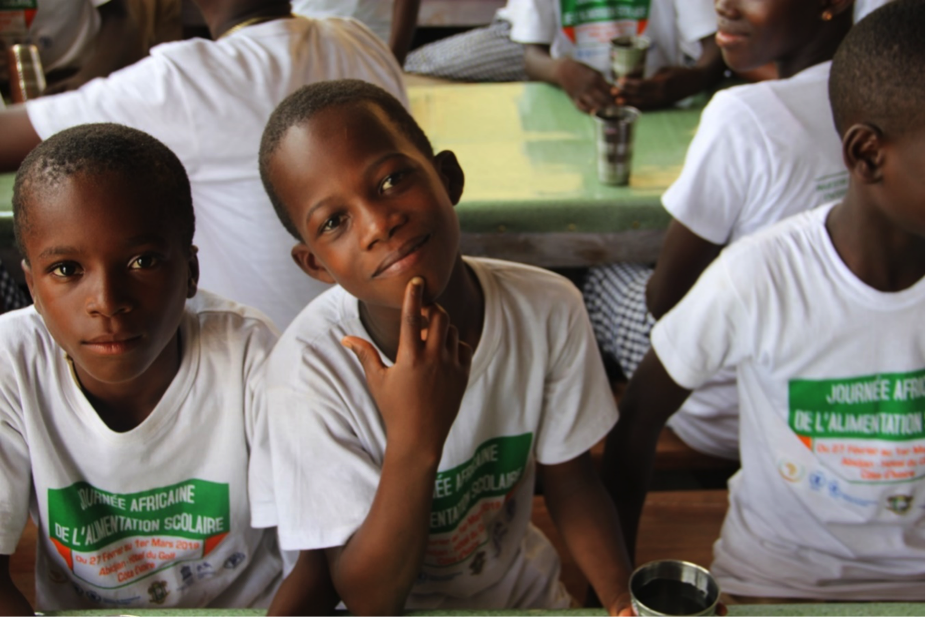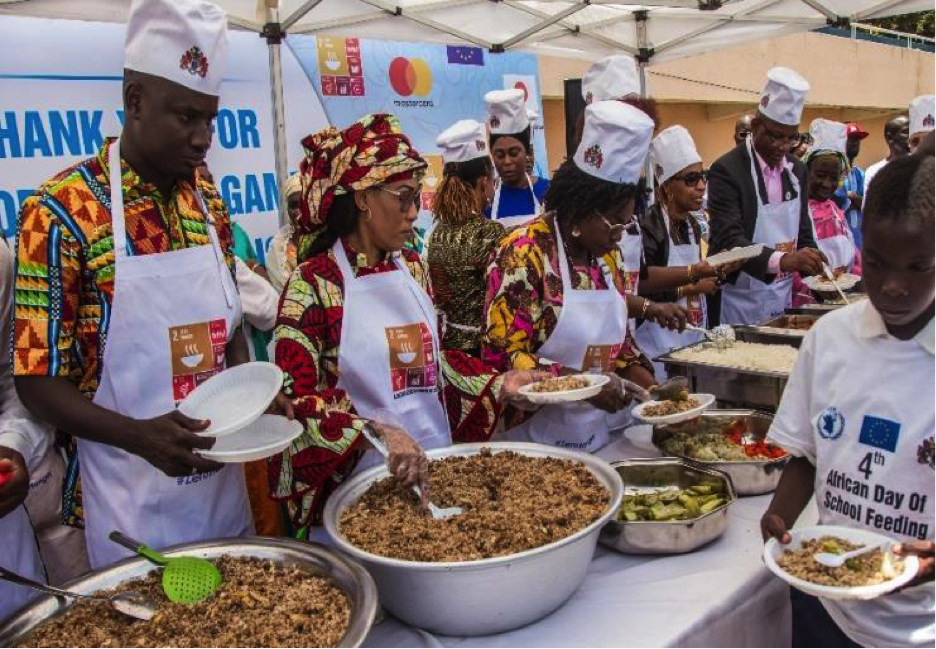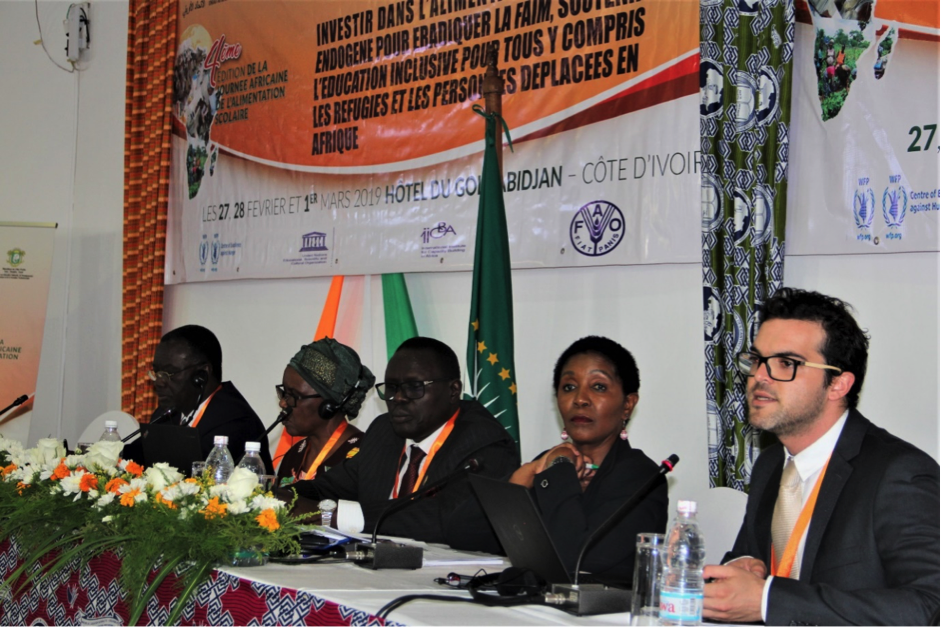
Students from the basic cycle of education joined in the 3rd African Day of School Feeding celebrations at the N’Zikro community school, in the outskirts of Abidjan, Côte d’Ivoire. WFP/Bruno Magalhaes
How can countries work together to create a regional framework for home-grown school feeding? How can cooperation efforts include multiple partners at once? It was five years ago that the WFP Centre of Excellence against Hunger Brazil took the first steps of its partnership with the African Union (AU), and we would like to take this opportunity to remember some of the key moments of that journey and some of the main achievements this collaboration generated.

The First Lady of The Gambia (second from left) joined the 3rd African Day of School Feeding celebrations at a public school in Central Banjul in 2019. WFP/Kebba Jallow
This partnership is part of a broader agenda of the WFP with the African Union that includes education, rural development, and child health and nutrition. In 2015, a delegation of AU staff members and ministers from African countries came to the WFP Centre of Excellence in Brazil to learn from the country’s school feeding experience. This took place after many South-South knowledge exchange events led by the Centre alongside WFP Country Offices and Regional Bureaux on the continent between 2012 and 2014. The aim of these activities was to foster countries’ discussions and interest in school feeding, as well as its linkages to rural development.
In some of the events the WFP Centre hosted, the WFP Africa Office, acting as the liaison bureau with the AU, engaged with us and joined forces to sensitize AU leaders about home-grown school feeding. As a result of this collaboration, when the AU officials came to Brazil, they could see first-hand what we were presenting in many of our missions and events. Once in Brazil they exchanged knowledge with the Brazilian Cooperation Agency (ABC) and the Brazilian Fund for Education Development (FNDE) about the country’s strategies and programmes to promote food and nutrition security and education development.

Representatives from the CESA Cluster secretariat, the FAO Regional Bureau for Africa, the AU Commission, the African Rural Economy & Agriculture Department, the AU Development Agency, and the WFP Centre of Excellence during the 3rd African Day of School Feeding, in Abidjan. AU/HRST
As a result of the South-South cooperation efforts with Brazil and the strong advocacy of the WFP Africa Office, the AU Commissioner of Human Resources, Science and Technology decided to: include home-grown school feeding programmes in the Continental Education Strategy; promote an AU formal resolution, seeking member states’ commitment to school feeding; and produce evidence to advocate for home-grown school feeding programmes across Africa.
The journey supported by the WFP Centre of Excellence includes the adoption of the Continental Education Strategy for Africa 2016-2025 (CESA), the creation of the African Day of School Feeding and the establishment of the Pan-African Network. Another product that derived of this partnership was the commissioning of a study on sustainable school feeding across AU states, which was launched in 2018, during the African Day of School Feeding, in Harare; and the CESA School Feeding Cluster instruments, launched during the African Day of School Feeding, in Abidjan.
You can learn more about the partnership here





